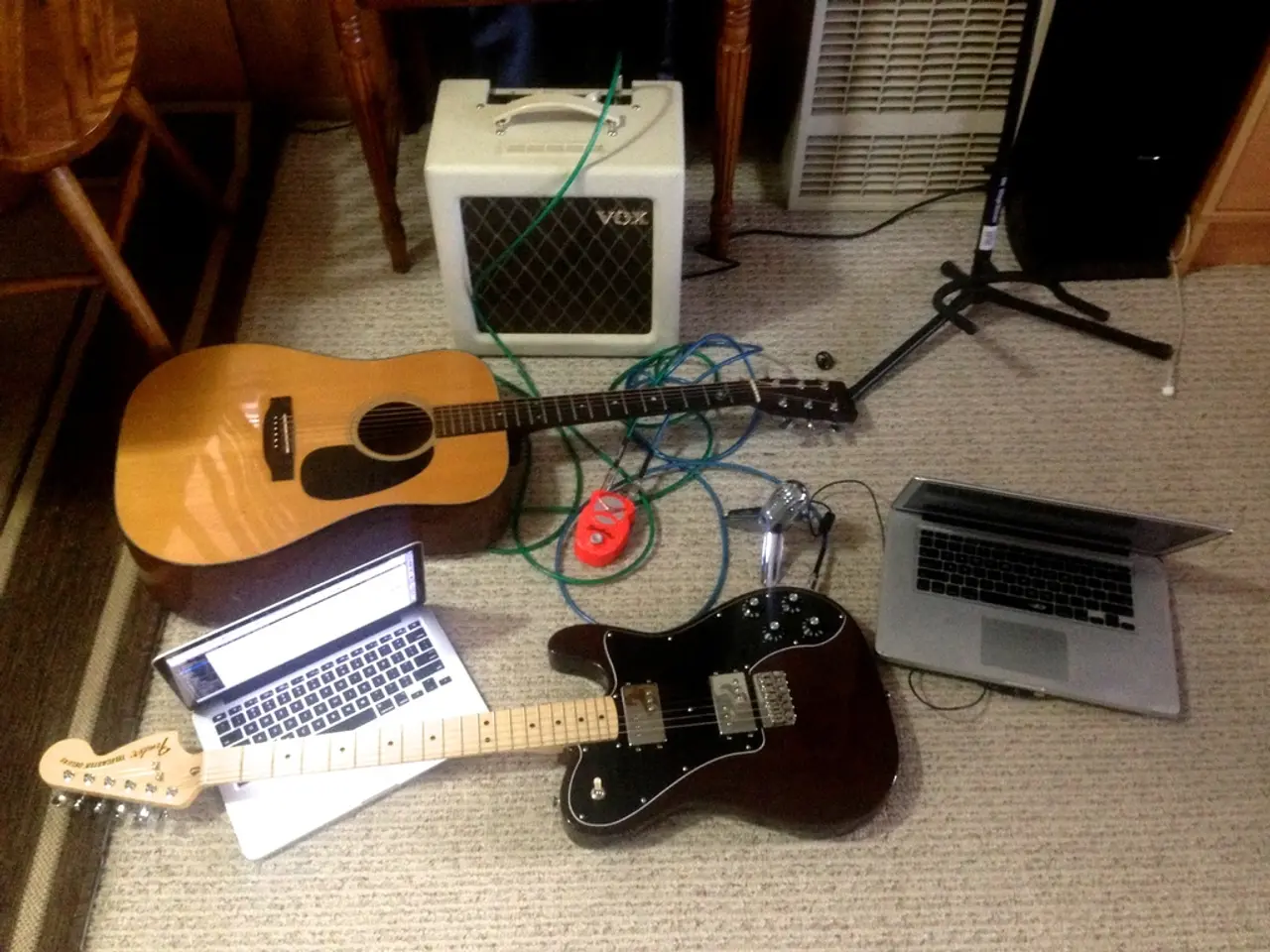Essential subjects essential for prospering in Sound Engineering
Are you a high school student with a passion for music and technology? Consider a career in sound engineering, a dynamic and exciting field that intersects art and science. Here's what you need to know to get started.
Understanding physics, especially acoustics, is beneficial for sound engineers, as it helps them grasp how sound behaves. This foundational knowledge can be gained through studying subjects like music technology, music recording and production, music theory, and composition, and aural perception. Additionally, computer science or technology courses can provide a strong foundation in digital audio workstations (DAWs), software, and hardware troubleshooting.
Practical skills are just as important as theoretical knowledge. Engaging in hands-on experiences, such as working in school music programs, local recording studios, or internships, can provide valuable practical knowledge and enhance technical skills.
A strong high school course plan for a future sound engineer would combine music-focused classes, physics, and technology/computer science courses to develop both artistic and technical proficiency.
Sound engineering offers various career opportunities in music and studio production, live sound, or broadcasting, each demanding unique skills and experiences. For instance, understanding audience dynamics and sound system design is essential in live sound and event production. On the other hand, sound for visual media, such as opera, television, and film, requires precise audio placement and synchronization with the visual storytelling.
Building a career as a sound engineer involves both educational qualifications and practical experience. A degree in audio engineering provides a solid foundation, but gaining practical experience through internships or part-time work is invaluable, offering real-world settings to apply classroom knowledge.
Moreover, technological advancements continue to create new roles in sound engineering, such as 3D audio technology and AI-enhanced sound mixing and mastering. These innovations open up exciting opportunities for sound engineers to push the boundaries of their craft.
In conclusion, a career in sound engineering is a rewarding path for those with a passion for music, technology, and creativity. By focusing on a balanced course plan that includes music-focused classes, physics, and technology/computer science courses, and gaining practical experience through hands-on activities and internships, you can set yourself on the path to a successful career in this dynamic and ever-evolving field.
References:
[1] MusicTech (2021). The Ultimate Guide to Careers in Sound Engineering. Retrieved from https://www.musictech.net/features/the-ultimate-guide-to-careers-in-sound-engineering
[2] Sound On Sound (2020). How to Become a Sound Engineer: A Comprehensive Guide. Retrieved from https://www.soundonsound.com/learning/articles/how-to-become-a-sound-engineer
[3] Berklee College of Music (n.d.). Careers in Sound Engineering. Retrieved from https://www.berklee.edu/careers/careers-in-sound-engineering
[4] University of West London (n.d.). Sound Engineering Courses. Retrieved from https://www.uwl.ac.uk/courses/sound-engineering
[5] The Recording Academy (n.d.). Careers in the Music Industry: Recording Engineer. Retrieved from https://www.grammy.com/careers-education/career-paths/recording-engineer
- To create a strong foundation in sound engineering, studying subjects like music technology, music recording and production, music theory, composition, and aural perception is beneficial.
- Gaining practical experience through school music programs, local recording studios, or internships can provide valuable knowledge and enhance technical skills in sound engineering.
- A degree in audio engineering can provide a solid foundation, but gaining practical experience through internships or part-time work is invaluable, offering real-world settings to apply classroom knowledge.
- Understanding audience dynamics and sound system design is essential in live sound and event production, while precise audio placement and synchronization with visual storytelling is required in sound for visual media.
- In addition to educational qualifications, a career in sound engineering offers exciting opportunities in 3D audio technology and AI-enhanced sound mixing and mastering.
- Pursuing a career in sound engineering can lead to various opportunities in music and studio production, live sound, or broadcasting, each demanding unique skills and experiences.
- To set yourself on the path to a successful career in sound engineering, consider a balanced course plan that includes music-focused classes, physics, and technology/computer science courses, and practical experience through hands-on activities and internships.




